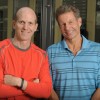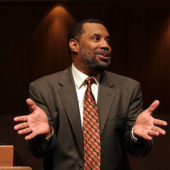When it comes to addiction, our brains need serious rebooting. Neural pathways are trained to respond to the dopamine highs that we get from things like cocaine and pornography.
Michael Cusack, author of Surfing for God, helps those with a sexual addiction through his ministry, Restoring the Soul, and he explains how our natural desire for attachment gets out of line.
“We have God-given desires in our heart. There are very, very deep thirsts, hungers, and appetites, and we are wired to attach. Historically, if you were to go back two thousand years in the church, and from about the fourth century forward, you start to see spiritual writers talking about the word ‘attachment.'”
“Attachment was how we take this capacity for us as human beings to be attached and connected to another human being and we attach ourselves and our heart, our spiritual emotional part, to some thing, to some person, to some substance, to some behavior. Those all mimic the kind of attachment that we were created for.”
Here is where the trouble really starts.
“Our brains respond as if we’re attaching, but anything that you give our heart to, if it’s not God or one of his good gifts, is an idol. When you give your heart to some thing, person process, substance, or behavior then it will enslave you.
That’s where addiction comes in.
“What happens, because we’re biological beings, is our brain gets enslaved and those neural pathways develop because of this counterfeit attachment.”
Michael applies these facts to pornography addiction.
“That novelty over stimulates the brain so that more dopamine, which is ‘I got to have it’ chemical, is being stimulated than would possibly happen under any other conditions. Suddenly, the brain is just in hyper, hyper, hyper drive and hyper stimulated.



















